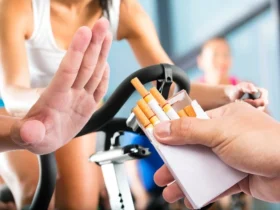
Body shaming has always been an issue. But, the recent advent of social media is compounding this problem, creating a widespread epidemic of body shaming, through media campaigns, kids, adults, websites, businesses, etc.
The list of places where you can now find body shamers is infinite and quite pervasive.
There is an unfortunately common misconception that fat people should, if they are not already, be ashamed of their body.
Several social media campaigns, like Strong4Life, even go so far as to believe, and to push this belief across social platforms, that making fat people feel ashamed of their bodies will inspire them to lose weight.
Specifically, Strong4Life released a campaign that showcased pictures of fat kids in black and white, whose eyes were deadened, like photos of POWs.
These photos were joined with captions saying things like chubby kids may not outlive their parents, and big bones didn’t make me this way. Big meals did.

There are a few fundamental issues with this, and they are all extremely harmful.
The first, and perhaps one of the biggest problems here, is the extreme, blatant entitlement these people have, to have the audacity to shame others to ‘help’ them get healthier.
A misconception within that is that fat does not necessarily equal unhealthy. Owing to genetics, some people simply have bodies that are more prone to gaining weight, where others have bodies and metabolisms that are more prone to weight loss.
A person could participate in vigorous aerobic exercise four days a week, could eat only vegetarian, and could still be considered ‘over-weight.’
The reality; they simply look larger than others.
Within that, even if being fat unequivocally equaled unhealthy, everyone has the right to privacy, they have the right to live the lifestyle they choose, and they have the right to live that lifestyle free from judgement.
The Real Effects of Body Shaming

There is also a damaging irony to organizations like Strong4Life whose goal it is to help fat people become healthier.
What I am referring to here is depression, suicidal tendencies, and increased risk of eating disorders.
Bullying in general is a powerful catalyst for these kinds of results, but fat shaming is sharper and more pointed.
Being constantly bullied for your weight hits on a few levels.
One, it is a constant, concerted effort to force people to conform to a society that, apparently, only values skinny, athletic, attractive people.
On top of this, many people cannot control their weight.
The feeling is claustrophobic; society wants you to be skinny, you can’t get yourself to be skinny, you don’t want to be skinny.
The effect is the utter destruction of self-love and happiness, in a bitter attempt to make everyone look the same.
Fat shaming is everywhere. It’s no longer just the kids on playgrounds at the middle school. It’s people in grocery stores, at the gym, social media campaigns, social media in general, advertising campaigns, etc.
It is an attack from all fronts, that feels personalized, and is unmistakably cruel.
It’s really not surprising that fat shaming has such horrific results.
Depression, something that is already becoming more prevalent, as a clear result of social media, is merely the tip of the iceberg.
Eating disorders, like Anorexia, Bulimia, and Body Dysmorphia, that are inexplicably linked to depression, are incredibly harmful. And they are occurring as a result of unnecessary, ill-informed body shaming.
Anorexia and Bulimia both result in extreme, unhealthy weight loss, as a result of distorted body image and, often, depression.

The difference; Anorexia involves eating little to no food, while Bulimia involves eating a lot, then purging. There is also Non-Purging Bulimia, which involves extreme, excessive exercise.
The results, however, are similarly horrific and potentially lethal. A major cause of these disorders are societal pressures, as social media tries to hoist one specific (thin) body type unto everyone.
Body Dysmorphic Disorder (BDD) involves intensive, persistent preoccupation with imagined bodily defects. BDD causes several emotional distresses and is entirely inescapable.
BDD is similar to the aforementioned eating disorders, although BDD doesn’t necessarily involve food consumption, although it can result, and is often linked, with Bulimia or Anorexia, as well as Social Anxiety and depression.
These are the results of organizations like Strong4Life’s campaigns to make people healthy and fit. Severe, debilitating mental disorders.
This is the real issue with body shaming in general, and fat shaming specifically. Society turns their unrealistic, unnecessary expectations into harsh internalized requirements.
Now, it could be argued that these organizations and people who participate in fat shaming have, or had, good intentions. Perhaps just their execution could be refined a bit, to be less blunt.
However, the fact of the matter is that fat shaming does not and will never work.
A recent study by Jane Wardle at the University of College London, surveyed nearly three thousand people about the results of fat shaming, victimization, and bullying.
The results; instead of being motivated to lose weight, people were more likely to gain weight, many becoming obese.
Reality Check

It is important to do your best to understand why fat shaming is so bad. What I’m asking here is something that is universally difficult. It is called empathy.
Mental health has always had its skeptics, and the same goes for these eating disorders.
Why can’t these people just eat a little more? is the common, insensitive question.
I’m going to do my best to make you understand why it’s really not at all that simple.
Imagine, for a moment, that you’re at the grocery store, selecting a carton of milk to add to your cart. Imagine a woman whom you do not know, approaching you, and suggesting that you get skim milk instead, and, while you’re at it, maybe replace the butter in your cart with some low-fat, margarine-like option, with the explanation that she doesn’t like to see young people so chubby.
This is an unwarranted attack. There is almost no way to respond to this.
Imagine being on the receiving end of that kind of treatment.
Imagine being placed automatically under public scrutiny, simply because you are heavier than the average (really just heavier than society wants people to be).
How would you respond to that? A sarcastic thanks, while you take your 1% milk and walk away with what remains of your pride?
If someone said that to you, you can well imagine the flush that would creep up your cheeks, and the buzzing that would fill your ears. No one has any right to speak to you like that.
Imagine, for a moment, that you’re at the gym, running on the elliptical. Imagine how it would feel for a guy, whom you don’t know, to pat you on the back as they walk past, expressing how proud they are that you made it to the gym, that you’re trying to lose weight.

Imagine feeling eyes turn towards you, imagine that flush creeping back up your cheeks, imagine putting on that smiling mask, perhaps giving a sarcastic thumbs up, and doing your utmost to ignore it, growing angry at yourself for being unable to.
Imagine going to a new doctor, who explains, upon first meeting you, that you are probably prediabetic.
Imagine your indignation, because you exercise four days a week, you’ve been a vegetarian for years, you know your blood sugar is at a healthy level.
You also know that the only reason the doctor suggested this is because she associated being fat with being unhealthy.
Upon explaining your situation, imagine the look of skepticism and contempt that your doctor gives you, because it is laughably unbelievable that a fat person can exercise and eat healthy.
Imagine being laughed at in public, imagine being insulted and demeaned by groups of people who have achieved society’s ideal body image.
Imagine having to be prepared to face attacks about how you look the moment you leave the confines of your home.
Imagine being laughed at and insulted at a club for dancing, because fat people shouldn’t dance, no one wants to see that.
Imagine being told to wear sweats instead of more form fitting pants or being told to skip dessert.

Now, imagine if that was you. Imagine you’re the one who spends their life constantly on guard, because you’ve experienced years of ruthless attacks on every front, from every type of person, in every possible situation.
No one ever deserves to feel unsafe in these places. Yet, because you are fat, you are under the scrutinizing glare of society. Your rights, and feelings are forfeit.
Fat people don’t deserve to feel safe, they’re not people, they are somehow inferior to a skinny person.
Again, the mental disorders that arise as a result of fat shaming are not surprising. It’s hard to like yourself when the world tells you that you shouldn’t.
It is so important, especially today, when body shaming is inescapable, to understand a few things.
The first might seem like a callback to kindergarten, but you can’t judge a book by its cover; you can’t judge how healthy somebody is, or how healthy they would like to be, from looking at them.
The second, even if you could, it is simply not your business.
Everybody, (and every body) has a story that is not written in red ink on their skin.
It is impossible to glance at someone and know immediately whether they have struggled with weight gain and loss for years, whether they’re currently trying to lose weight, whether they came to the decision that they are comfortable with who they are and do not want to try to lose weight.
Which is why it is not your business.
Everything has been building to the point we are at now. A point where fat shaming, in both subtle and blatant ways, has become the norm for American society.

Products such as slimming teas, programs to help weight loss, programs that advertise fast results, are not only fake, but are part of the problem; they are adding to the societal standpoint that it is not good to be fat.
Other media outlets explain ways to look thinner, ways to cover up and hide excess fat, as though it should be something to be hidden, as though fat doesn’t belong in public.
The more obvious side of this is the relentless jokes, from both comedians and TV shows alike, the ‘fat joke’ has always been excessively popular.
The latest fad within that is self-deprecating humor; comedians will make fun of themselves, their struggles with weight, their depression, and their anxiety, to incite laughter, which leads to their audiences beginning to do the same thing.
The only thing that’s happening here is the encouragement of self-deprecation.
And while organizations like Strong4Life might be using social media to advertise a campaign whose purpose is to invoke shame, there are other movements that are definitely more popular, and certainly more powerful.
Social movements like the body-positive movement have created a forcibly safe space on social media where people can express their pride for their bodies, no matter what they look like.
Fat and skinny alike; the goal is self-love and pride.
These movements have gained such attention that certain companies have begun to use models for their products that are more representative to everyone.
The point that is finally beginning to come across; everybody is beautiful, the way they look should be unrelated to how they are treated. A body is not a person.
Again, What's Wrong With Fat Shaming?

Everything.
It is cruel and has the potential to wreak irreparable damage upon the psyches of innocent, unassuming people.
It has never, and will never, succeed. But the point is that peoples’ health and weight should never become an aspect of public scrutiny or concern. All people deserve the freedom to look the way they choose without feeling unsafe or violated.
Cat-calling and insulting jokes merely add to problem. The only bi-product of the fat shaming epidemic that is inspirational, is the body positivity movement.
Everyone should be positive about their body.
And no one should ever try to take that away.

Article by:
Daniel DeMoss
I’m a personal trainer based in Denver (Matrix Gym) and a true fitness nerd. If I’m not training clients or working out at my home gym, I’m probably skiing, cycling or hiking with my dog Rufus.
Get in touch: daniel@dumbbellsreview.com








Leave a Reply